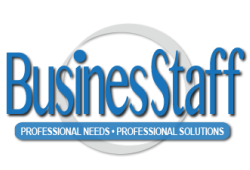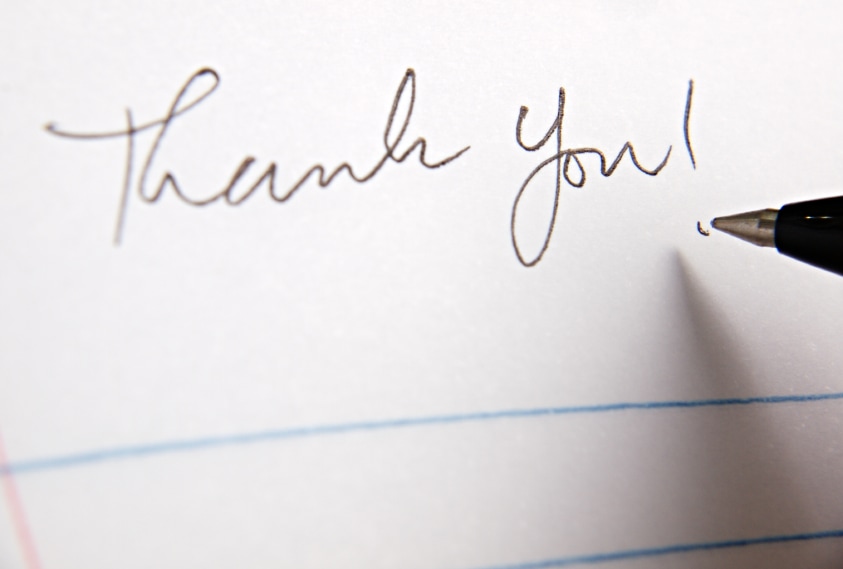There are basically two formats for a thank you letter
:
1. Typed business letter that is sent via postal mail
2. Typed letter that is sent via email
Both letters contain basically the same information, but a typed letter sent via postal mail will give you the
flexibility for more content, but a letter sent via email can be delivered instantly while still delivering your
message of gratitude
.
Whether you send a business letter via postal mail or an email thank you letter is ultimately up to you.
It all comes down to the style of company combined with your own personal style. If the company tends to
be less sophisticated, then sending a thank you letter via postal mail is probably a good idea.
On the other hand if you are interviewing with any type of Technology Company then an email letter is
probably best.
Key points to writing effective thank you letters:
:
Follow up letters are some of the only places where emailed thank you letters are acceptable.
Time is of the essence with follow up letters. Email may be the only way you are able to chime in
before the position is filled.
If you still prefer to type and mail a follow up letter you will set yourself apart and give the
potential employer more of a reason to remember you among all the applicants..
This requires you to send your letter almost immediately since it will have to go through the mail.
It is ok to send electronic thanks when time is of the essence and you can't afford to wait for the
snail to deliver the mail.
Make your thank you letters your own work. It will be very obvious if you send words that are not
your own.
When you leave an interview ask your interviewer for a business card. This is a great way to get
access to all the information you need whether you decide to send a traditional thank you letter
or one via email.
Content and tone of a thank you letter:
The actual content of your thank you letter should be direct and specific.
Refer to things you spoke about in your interview especially your qualifications and how you fulfill
the needs of the company.
Reference personal things that occurred in the interview.
Handle your wording tactfully and personably and your interviewer will be impressed and remember who you are.
Your tone should remain professional.
Consider your follow up letter as if it were part of the interview. It you are too stiff and cold the
letter may end up sounding like a form letter. If you are too casual, it may sound like you are not
serious about this job.
:
1. Typed business letter that is sent via postal mail
2. Typed letter that is sent via email
Both letters contain basically the same information, but a typed letter sent via postal mail will give you the
flexibility for more content, but a letter sent via email can be delivered instantly while still delivering your
message of gratitude
.
Whether you send a business letter via postal mail or an email thank you letter is ultimately up to you.
It all comes down to the style of company combined with your own personal style. If the company tends to
be less sophisticated, then sending a thank you letter via postal mail is probably a good idea.
On the other hand if you are interviewing with any type of Technology Company then an email letter is
probably best.
Key points to writing effective thank you letters:
:
Follow up letters are some of the only places where emailed thank you letters are acceptable.
Time is of the essence with follow up letters. Email may be the only way you are able to chime in
before the position is filled.
If you still prefer to type and mail a follow up letter you will set yourself apart and give the
potential employer more of a reason to remember you among all the applicants..
This requires you to send your letter almost immediately since it will have to go through the mail.
It is ok to send electronic thanks when time is of the essence and you can't afford to wait for the
snail to deliver the mail.
Make your thank you letters your own work. It will be very obvious if you send words that are not
your own.
When you leave an interview ask your interviewer for a business card. This is a great way to get
access to all the information you need whether you decide to send a traditional thank you letter
or one via email.
Content and tone of a thank you letter:
The actual content of your thank you letter should be direct and specific.
Refer to things you spoke about in your interview especially your qualifications and how you fulfill
the needs of the company.
Reference personal things that occurred in the interview.
Handle your wording tactfully and personably and your interviewer will be impressed and remember who you are.
Your tone should remain professional.
Consider your follow up letter as if it were part of the interview. It you are too stiff and cold the
letter may end up sounding like a form letter. If you are too casual, it may sound like you are not
serious about this job.


 RSS Feed
RSS Feed